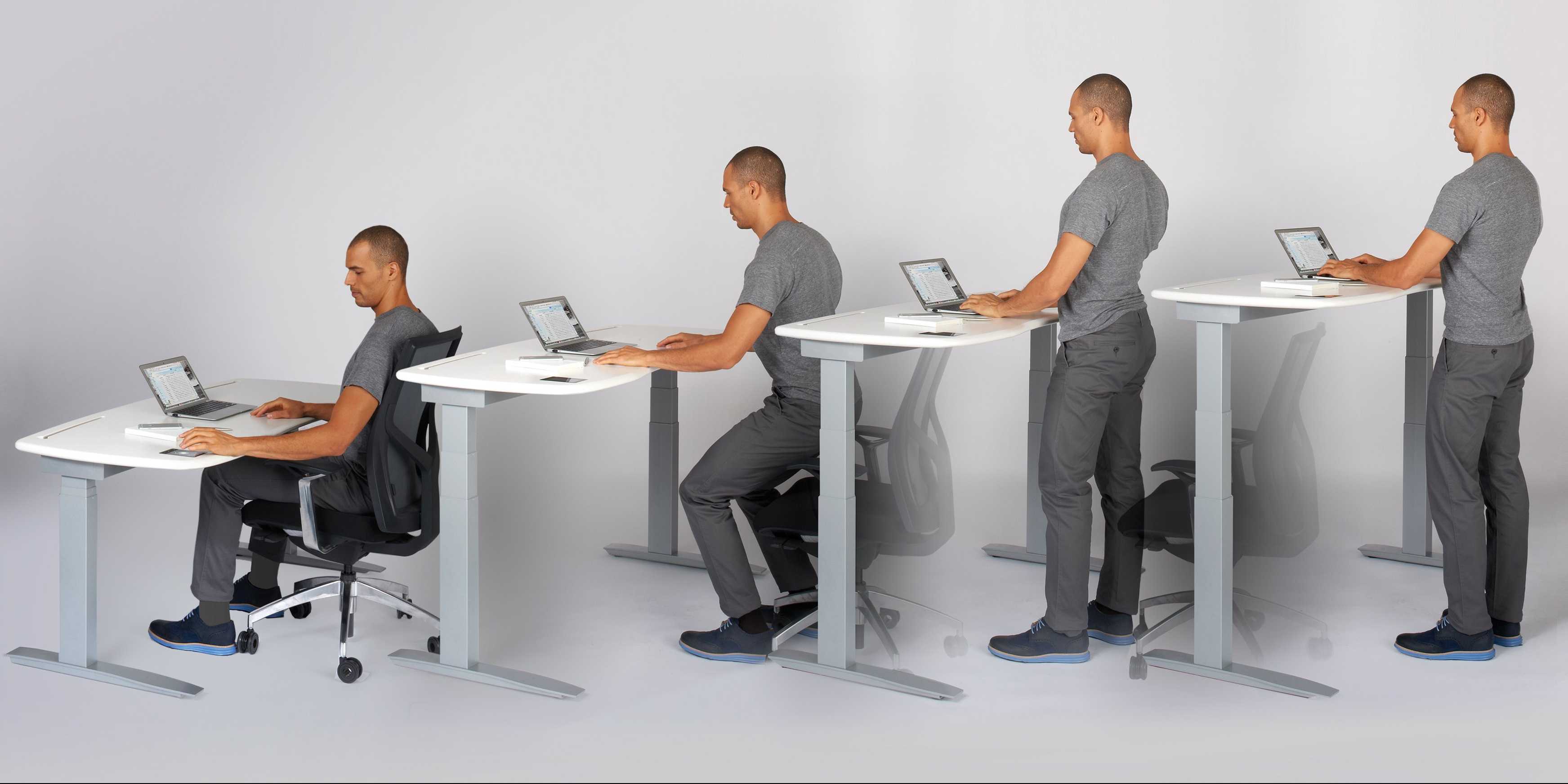Standing desks continue to receive praise for their ability to improve the health and productivity of employees. Although numerous studies suggest that the health benefits are less significant than the hype, employers continue to invest in upgrading office furniture to promote standing over sitting in hopes to recoup the investment from lower healthcare costs. Some studies have shown standing desks to be effective tools for higher productivity, but additional research needs to be published on the topic before it can be deemed conclusive.
A new (but small) study suggests that using standing desks may not be as good for employees as previously believed. Specifically, it suggests that standing at a desk for a prolonged period can lead to “significant” discomfort and mental sluggishness. The study, conducted by researchers at Curtin University in Australia, reviewed 20 adults who undertook two hours of laboratory-based standing computer work. Researchers investigated “changes in discomfort and cognitive function, along with muscle fatigue, movement, lower limb swelling and mental state.”

The results conflict with current popular beliefs on the impact of standing desks. Over time, participants showed discomfort increases in all body areas as well as sustained attention reaction time deterioration. Creative problem solving did improve, however. The researchers went as far to say that “prolonged standing should be undertaken with caution.”
Although this is not the first piece of research to suggest adverse impacts from prolonged standing, it is important to note that scale of the research creates limitations on how influential the research can be. Additional research on the topic, including replicating this study, is necessary to make a final determination on whether employers should invest significant dollars into upgrading employee desks. Also, it is unclear on whether study participants were instructed on how to properly use standing desks prior to their participation and observation from researchers. If they were not, this could have a meaningful impact on the results.
If employers want to promote standing desks at the office, they should also promote good form. In addition to providing the desks, they can offer educational resources that demonstrate proper standing desk form. This will help reduce discomfort and mitigate the negative impacts noted in the study noted above.












